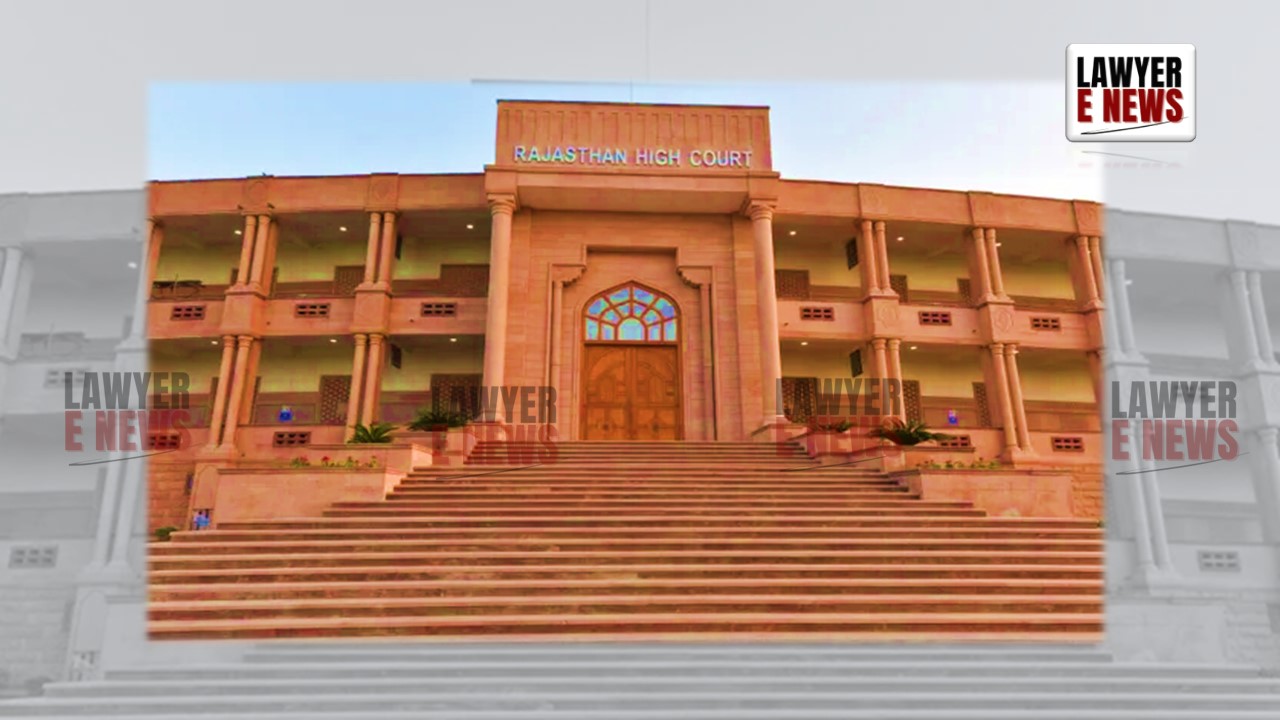-
by Admin
15 February 2026 5:35 AM



In a significant ruling, the Rajasthan High Court has clarified the maintainability of intra-court appeals against judgments rendered by Single Judges when exercising jurisdiction over orders passed by the Board of Revenue. The decision addresses a long-standing debate on whether such appeals can be entertained when the original petitions are filed under Articles 226 and 227 of the Constitution.
The appeals in question stemmed from various writ petitions filed under Articles 226 and 227 of the Constitution challenging the decisions of the Board of Revenue, which had exercised its revisional and appellate powers. The core legal issue was whether intra-court appeals could be maintained against Single Judge orders made in supervisory jurisdiction under Article 227. The Rajasthan High Court Ordinance of 1949 initially provided for intra-court appeals, but this provision was repealed by the Judicial Administration Laws (Repeal) Act, 2001, creating uncertainty regarding the maintainability of such appeals.
Legislative Framework: The Court highlighted that Section 18 of the Rajasthan High Court Ordinance, 1949, which allowed intra-court appeals, was repealed in 2001. Rule 134 of the Rajasthan High Court Rules was later amended in 2005, excluding appeals from orders made purely under supervisory jurisdiction (Article 227).
Jurisdictional Distinction: The judgment underscored the difference between Articles 226 and 227, where Article 226 relates to original writ jurisdiction, while Article 227 involves supervisory control over subordinate courts and tribunals. Supreme Court precedents such as Umaji Keshao Meshram and Radhey Shyam v. Chhabi Nath were referenced to clarify that judicial orders by civil courts are not subject to certiorari under Article 226, though supervisory jurisdiction under Article 227 could apply.
Revenue vs. Civil Courts: The Court elaborated on the distinct roles of revenue courts and civil courts. While civil courts have plenary jurisdiction under the Code of Civil Procedure (CPC), revenue courts are specialized entities established under laws like the Rajasthan Tenancy Act, 1955, and the Rajasthan Land Revenue Act, 1956. They deal exclusively with revenue matters and are overseen by the Board of Revenue, which functions as a tribunal rather than a civil court.
The High Court reasoned that revenue courts, including the Board of Revenue, do not constitute civil courts and, therefore, orders passed by them can be challenged under Article 226 if the circumstances justify certiorari jurisdiction. It emphasized that when petitions are filed invoking both Articles 226 and 227, and the facts substantiate a claim under Article 226, intra-court appeals are maintainable.
This ruling resolves the ambiguity over whether parties can pursue intra-court appeals against Single Judge decisions that address Board of Revenue orders. The judgment allows appeals when petitions invoke both constitutional articles and primarily seek relief under Article 226, even if Article 227 is cited as ancillary.
The Rajasthan High Court's decision provides clarity on the procedural pathway for litigants challenging decisions from the Board of Revenue. By distinguishing between the different jurisdictions of Articles 226 and 227 and confirming the special status of revenue courts as separate from civil courts, the Court upheld the right to intra-court appeals when substantial writ jurisdiction under Article 226 is exercised. All relevant appeals in this case were deemed maintainable and slated for further hearings.
Date of decision: 25/10/2024
Ratna @ Ratan Lal vs Board of Revenue for Rajasthan and Others
